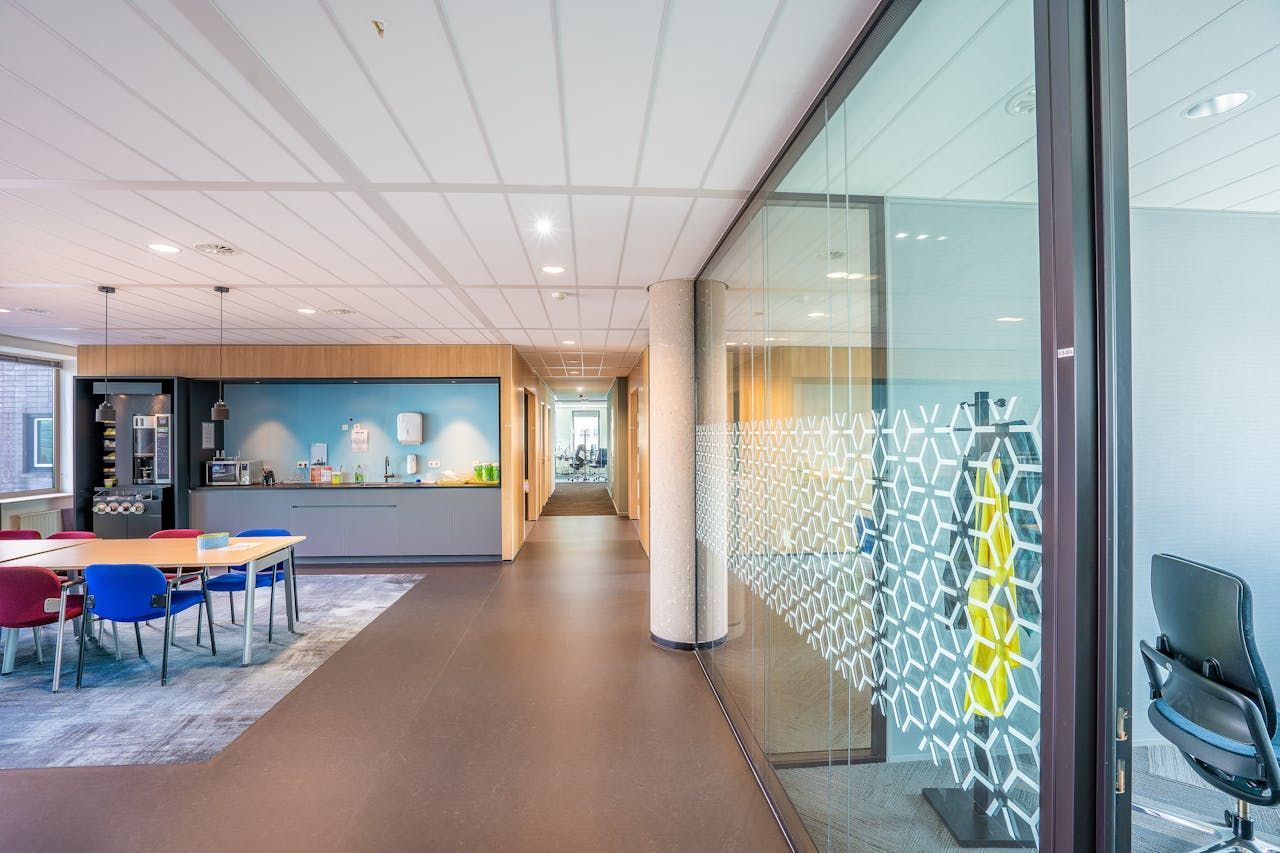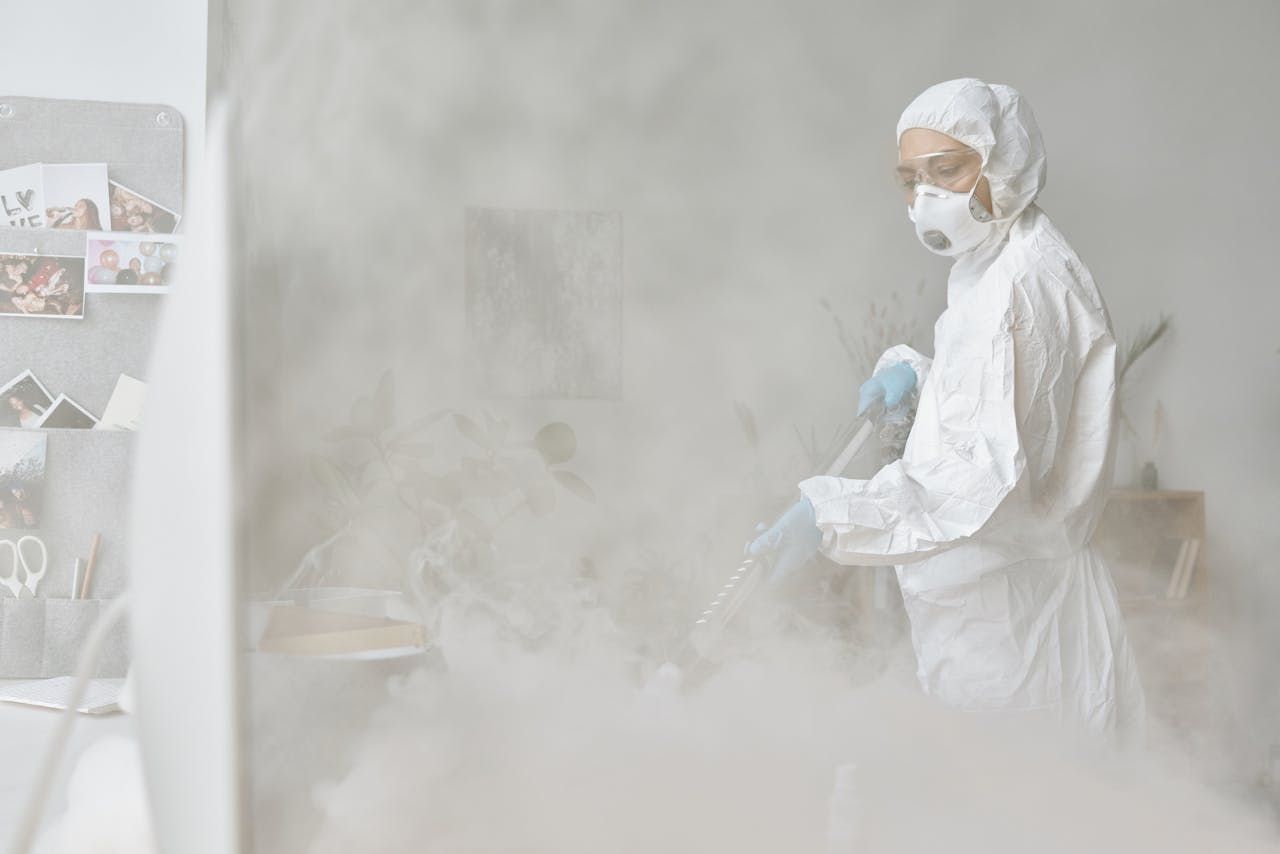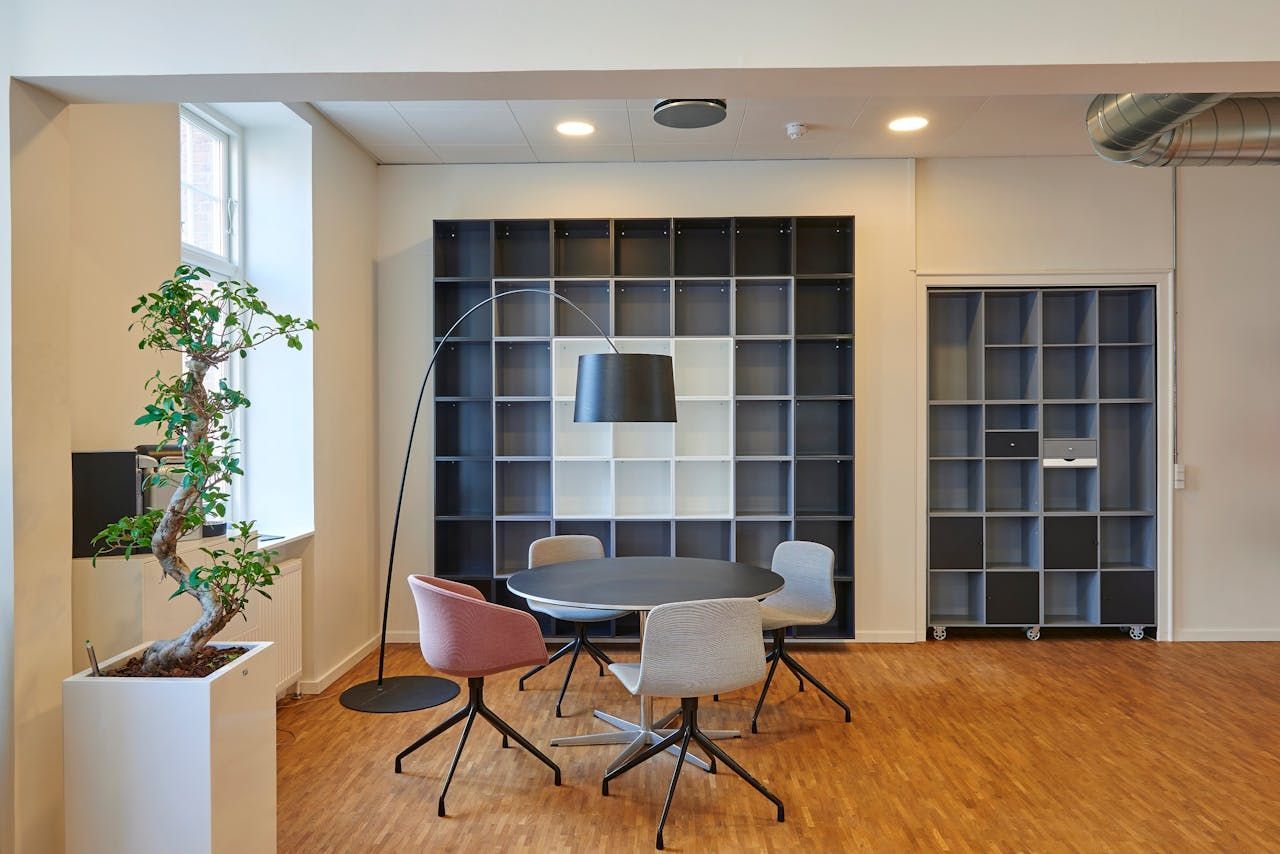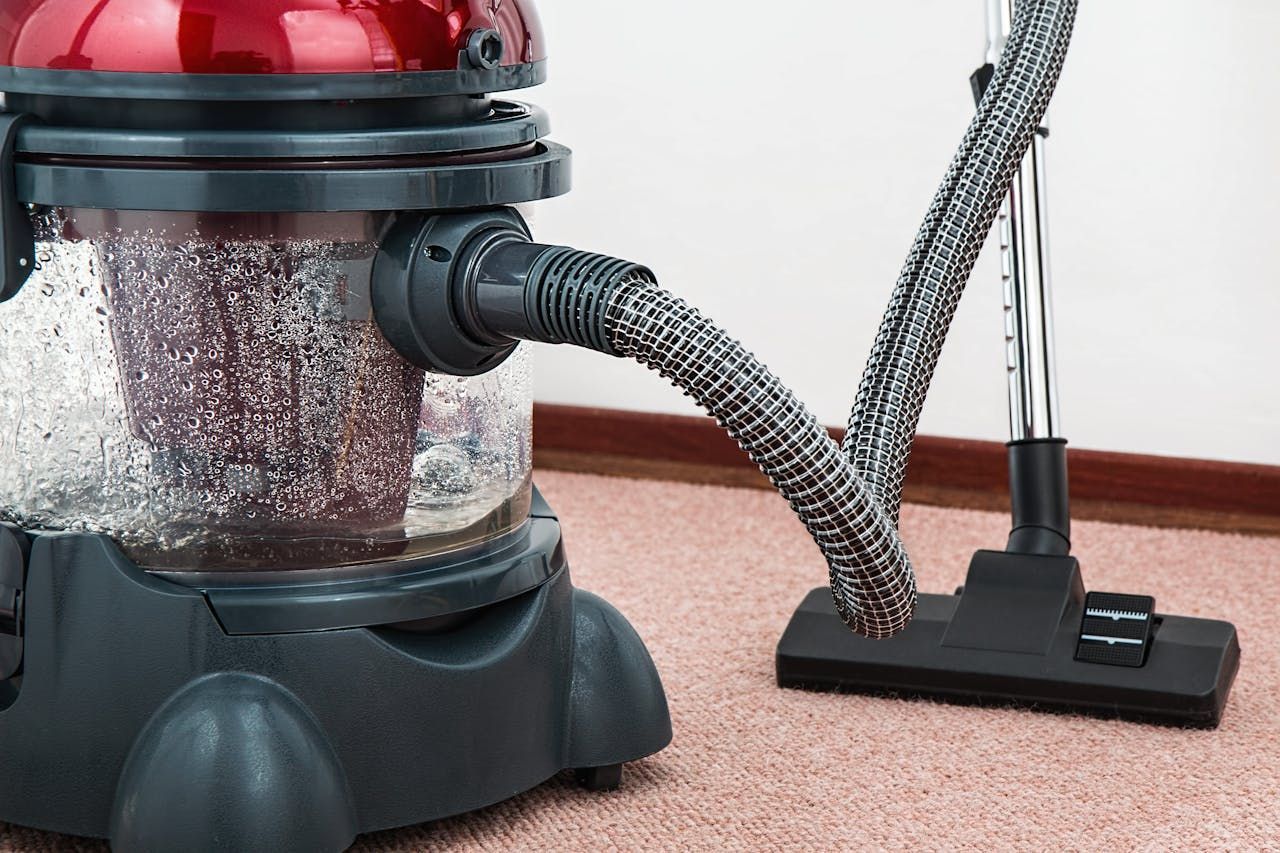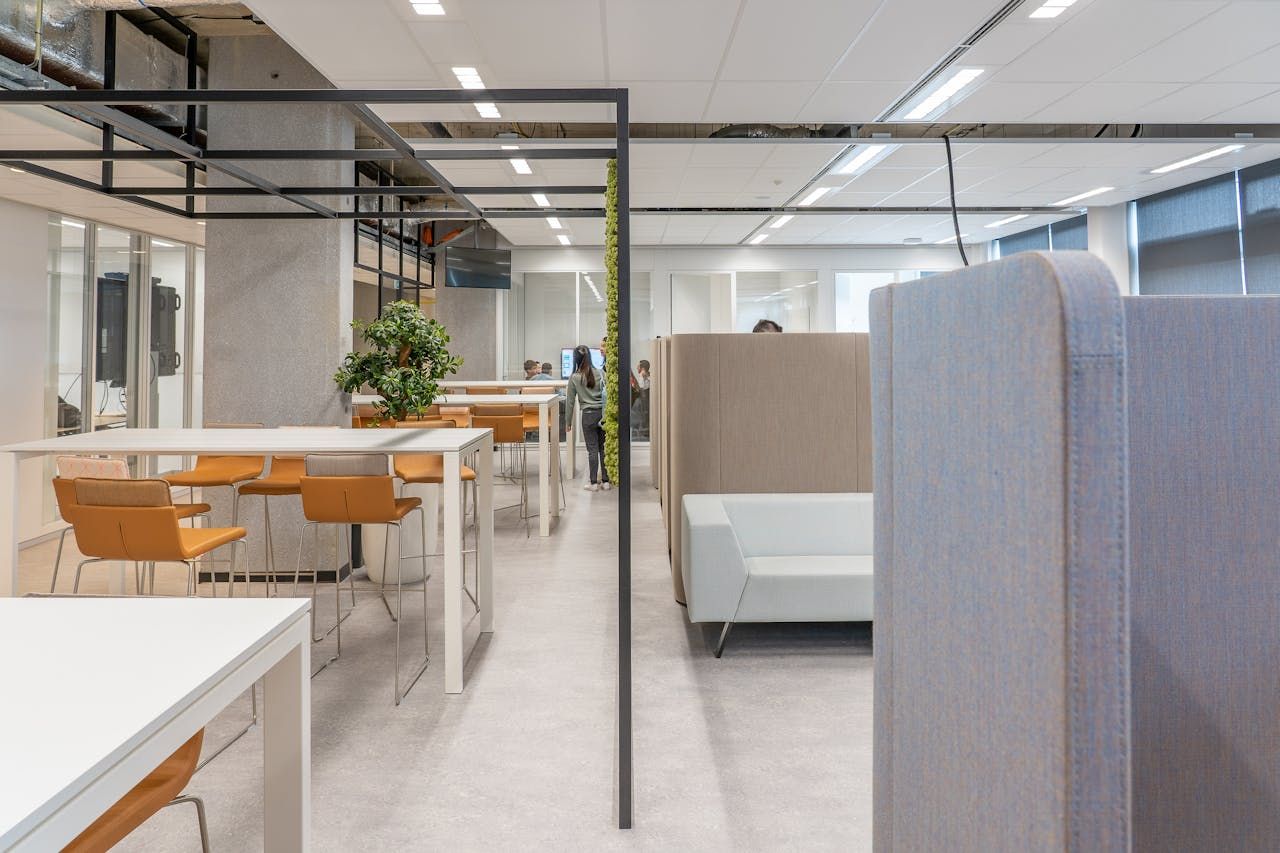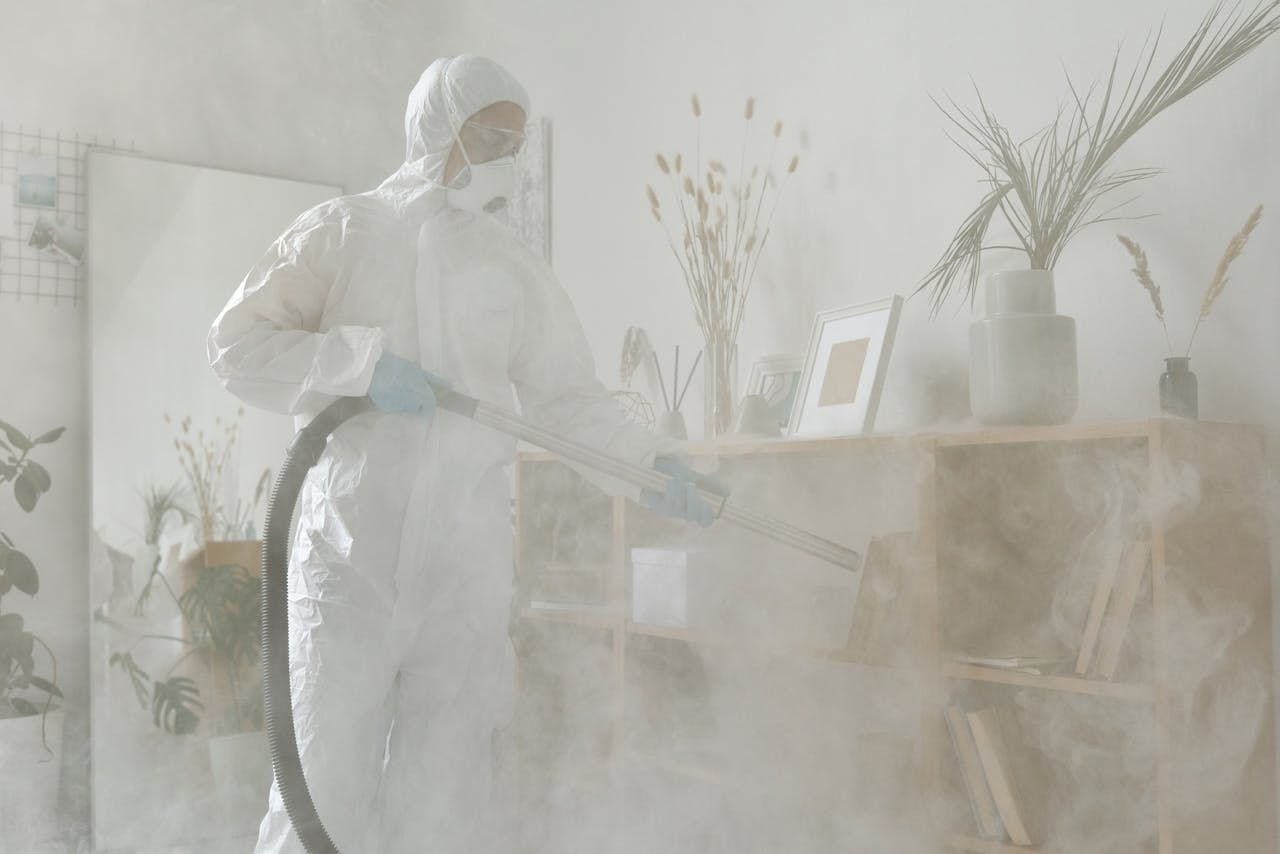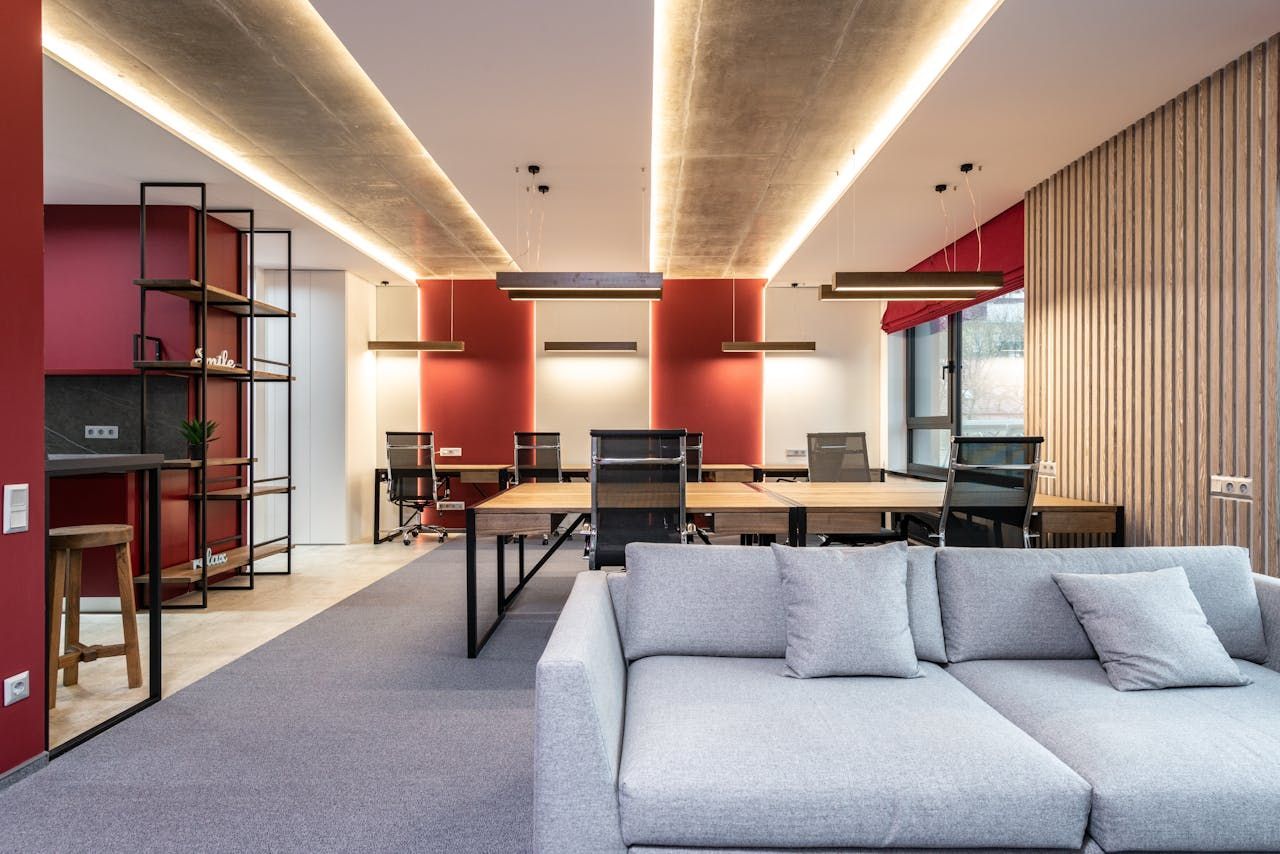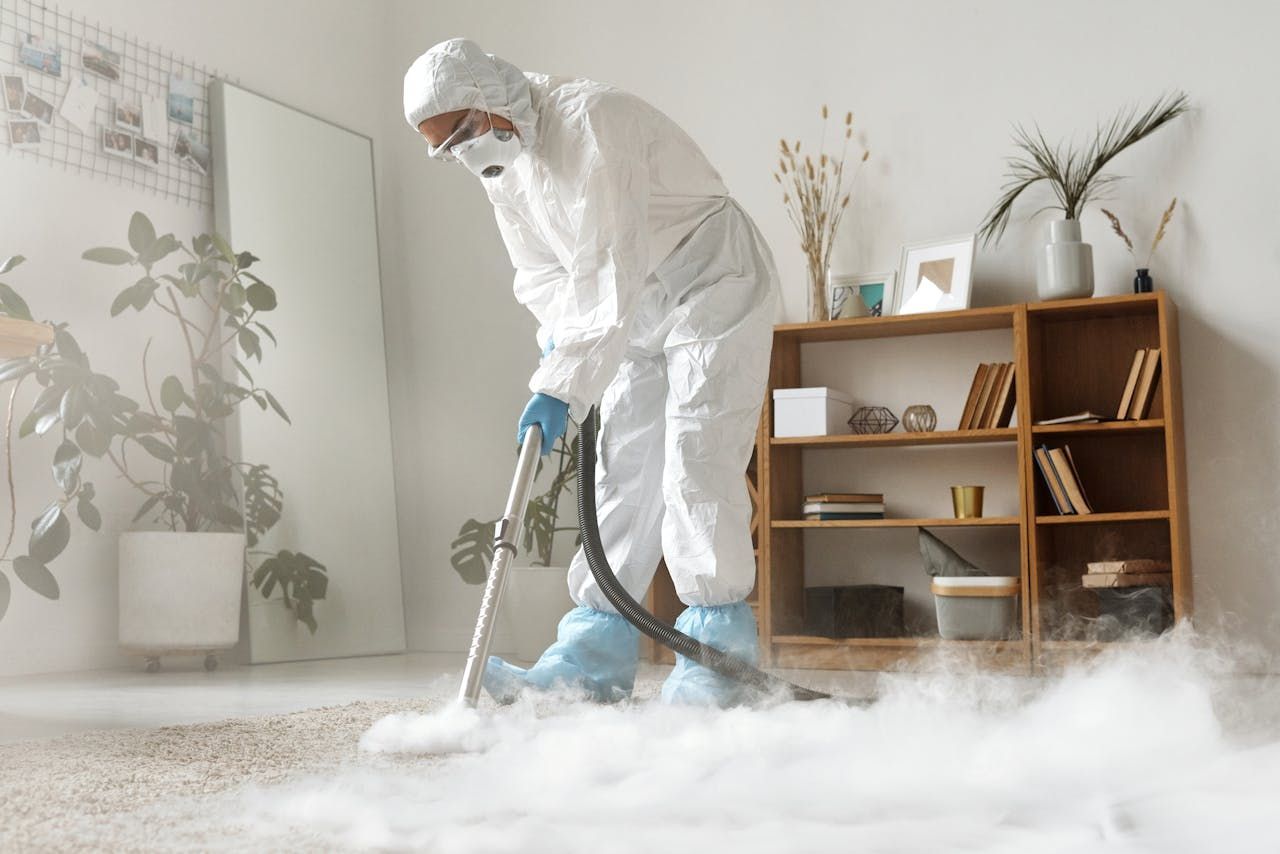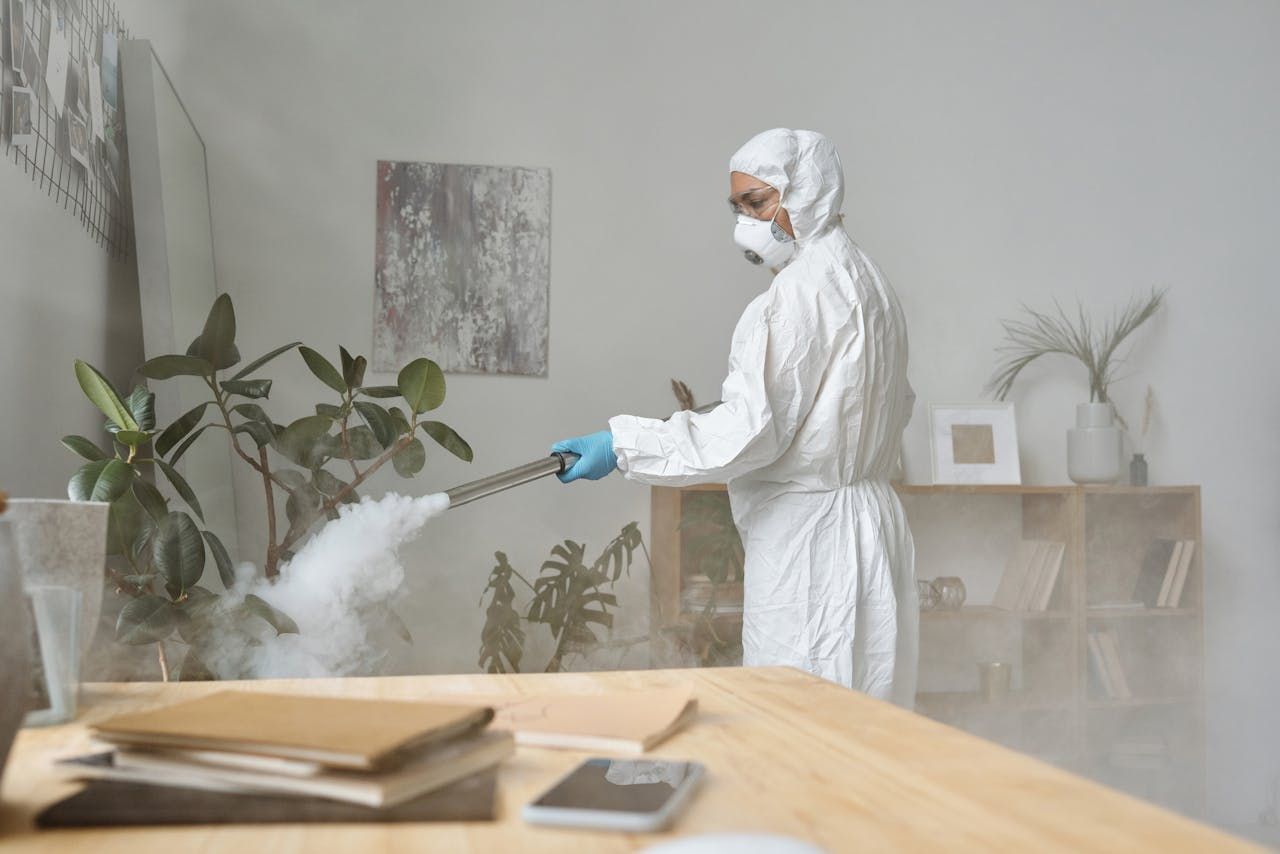How Often Should You Clean Your Office Windows? A Manager’s Guide
Can you imagine one of your employees looking out the window on a beautiful sunny day, only to have their view obstructed by bird droppings and dirt buildup? And let’s not even think about what kind of impression that messy window will have on your visitors and clients.
The truth is, dirty windows might not seem like an important part of your business, but they can make a big impact - and not in the way you want.
A scruffy, unwashed window can influence how people (visitors and employees alike) view you. And with first impressions, you don’t get a second chance. So as an office manager, what can you do?
We’re going to share our insider information to help you know exactly when it’s time to pick up the squeegee or bring in a professional window cleaning team.
What Makes Windows Dirty?
Cleaning dirty windows is all about knowing the enemy. For office windows, it’s actually fairly easy to understand what can lead to dirty windows, what makes them worse and what can cause you to clean them more frequently.
Here are some of the main factors that affect how often you might need to
clean your office windows:
Location and Environment
Urban vs. Rural - Offices in busy urban areas with higher pollution levels will generally require more frequent cleaning than those in rural locations.
Proximity To Roads - Windows facing busy roads or construction sites will accumulate dirt and grime more quickly.
Weather Conditions - Exposure to rain, snow or strong winds can impact how quickly your windows get dirty. For example, several times a year, the UK gets smothered by a distinct red dust from the Saharan desert.
Building Type and Usage
High-Rise Buildings - It makes sense that the higher floors tend to accumulate less dirt from street-level dirt and pollution, but they can catch more bird droppings!
Ground-Level Offices - Windows at ground level are more prone to dirt, smudges and accidental contact.
Office Layout - Open-plan offices with large windows between workspaces require more frequent cleaning as dirt is more obvious, more quickly.
Business Type and Image
Client-Facing Businesses - Offices that receive clients or visitors will need more frequent cleaning to maintain a professional image.
Seasonality
Spring and Summer - Increased pollen and dust in the air means more frequent cleaning during these sunnier seasons.
Autumn and Winter - Rain can leave streaks and smudges on windows, requiring more attention, more regularly in the chillier months.
By bearing these factors in mind, you can understand how frequently your windows may need cleaning to keep them looking spotless - and it’s pretty frequent!
The Impact of Dirty Windows
Dirty windows in your office or commercial building will be impacting your business, whether you are aware of it or not. The murky or grubby panes of glass don’t just make the views inaccessible, they;
- Look Unprofessional - Every touchpoint your customers have with you builds up an image of your business. Dirty windows tell them you may not be professionals who take your public profile seriously.
- Feel Grimy - Don’t forget about the people on the inside looking out through smeared, dirty windows. Poor window upkeep can lead to low staff morale, especially when you’re obscuring their connection to the outside.
- Make It Darker Inside - Even one messy window affects natural light, picture how much you’re blocking the light when you have hundreds of dirty windows in an office. And less natural light can lower mood and productivity in your team.
- Be Unhygienic - Dirt and grime build-up isn't healthy, especially when bird poo is in the mix. Windows that are smeared with dirt, grease and droppings can pose a hygiene risk.
The Ideal Office Window Cleaning Schedule
The best schedule for cleaning your dirty office windows is going to be dependent on the type of window and where they are in your building.
Monthly Cleaning
Windows in reception areas, waiting rooms or conference and meeting rooms ideally need cleaning monthly. This is especially true for offices with large, street-facing floor-to-ceiling windows, like estate agencies, solicitors or accounting firms.
Quarterly Cleaning
Cleaning other windows quarterly is ideal to keep them shining and clear without overdoing it.
Some offices can have internal windows, which don’t need as much attention. You can clean these windows every six months.
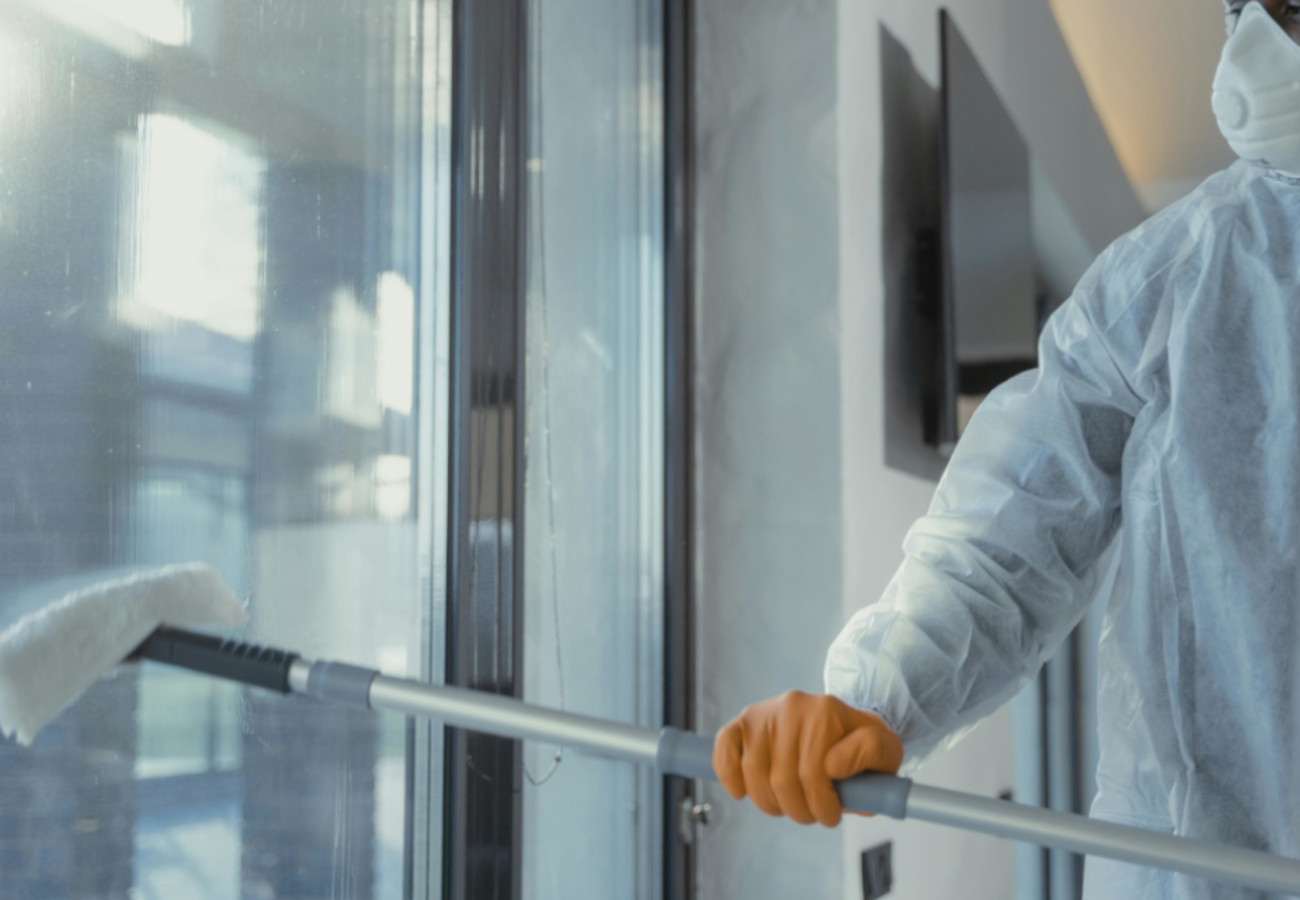
Window Cleaning Tips
The outside of your windows should ideally be left to the pros, but if you want to reduce your window cleaning bill, you could do the inside of the windows yourself. If you’ve got time, here’s the best way to do that:
- Gather Your Supplies: Microfibre cloths, a squeegee, a spray bottle, warm water and white vinegar or chosen window cleaning solution.
- Prepare The Windows: Dust or wipe down the windows to remove loose dirt and debris.
- Mix Your Cleaning Solution: Fill the spray bottle with warm water. You can add a small amount of white vinegar for extra cleaning power.
- Spray And Squeegee: Spray the window with the cleaning solution, then use the squeegee to wipe from top to bottom, overlapping each stroke.
- Dry and Buff: Use a clean, dry microfibre cloth to dry the edges of the window and buff away any remaining streaks. Allow about 10-15 minutes per window if you are also cleaning sills and frames.
Benefits of Professional Office Window Cleaning
While you might have time to clean the internal windows in your office if you’re lucky, it’s still likely that you’ll be pushing a more pressing task to the side to do that. That’s where professional window cleaners come in.
When you use pros to keep your windows spotless and crystal clear, you’re getting more than just a clean window. You’re getting:
Expertise and Efficiency - Ever cleaned a window and found more streaks than before you began? Professional window cleaners have the training and experience to clean windows quickly and effectively.
Safety - Cleaning windows, especially at height, can be dangerous. Professionals have the necessary insurance, safety training and equipment to minimise risks.
Quality Results - Professional cleaning ensures streak-free and sparkling windows, enhancing the overall appearance of the workspace.
Time Savings - Outsourcing window cleaning frees your employees to focus on their core responsibilities. And unless you include window cleaning in the job description, you will have far happier staff!
LNC Services has experience providing professional window cleaning for various types of commercial properties throughout London, Croydon and beyond. We’re known for delivering sparkling clean windows with stellar customer service to match.
Picking a reliable, experienced commercial window cleaner like LNC can be the difference between crystal-clear windows that set the standard and built-up dirt that darkens your reputation.
Got Dirty Office Windows?
Dirty windows affect your business in ways you might not realise, so regular cleaning is a must. A professional window clean means you get lovely, bright natural light and a boost to your brand profile - booking a clean every few months means never having to think about it again.
If you’re tackling the job yourself, keep in mind the time of year, your location and where your windows are to decide on a window cleaning schedule that works for you.
If the idea of scrubbing glass doesn’t appeal, just get in touch with us
here, we love nothing more than leaving a building gleaming!
